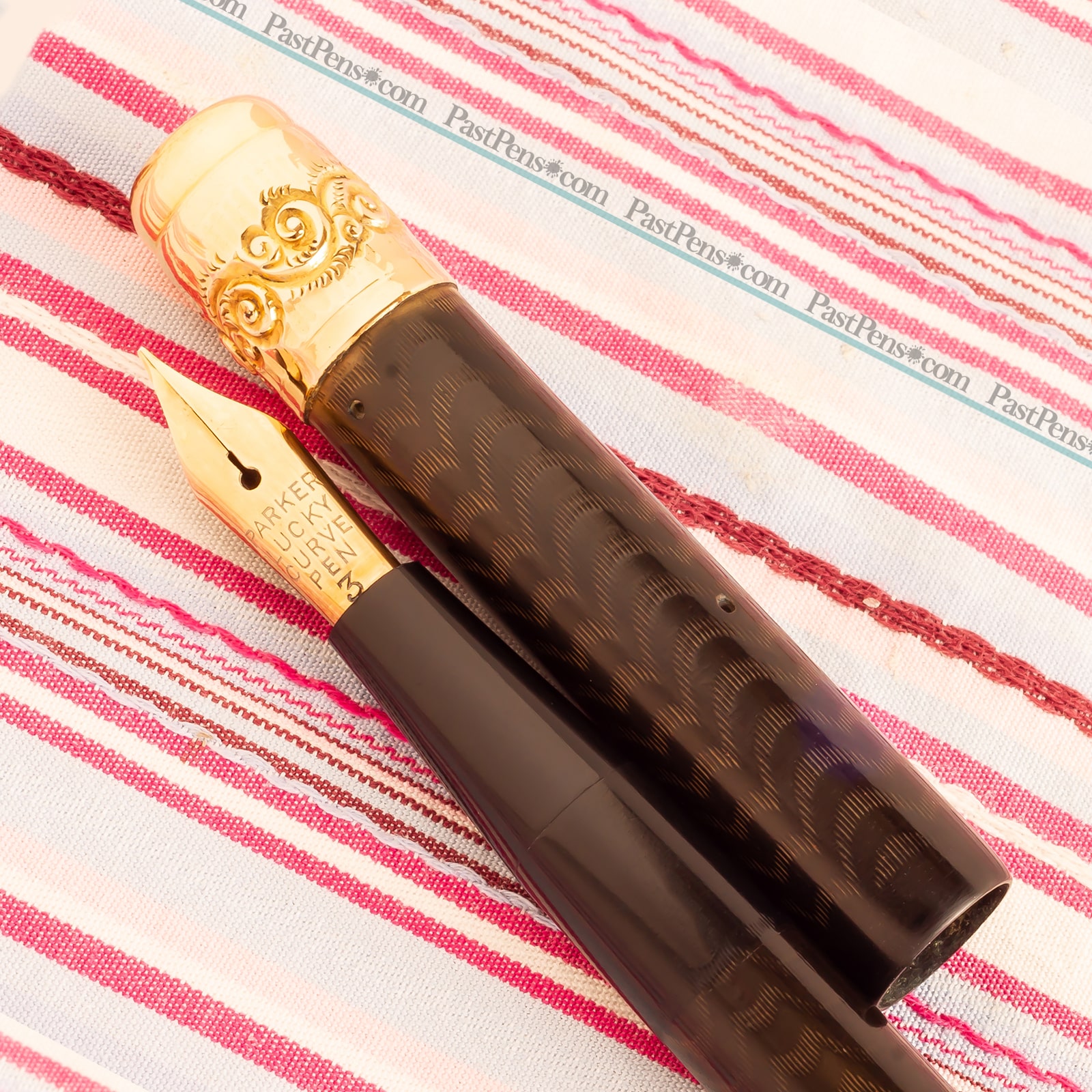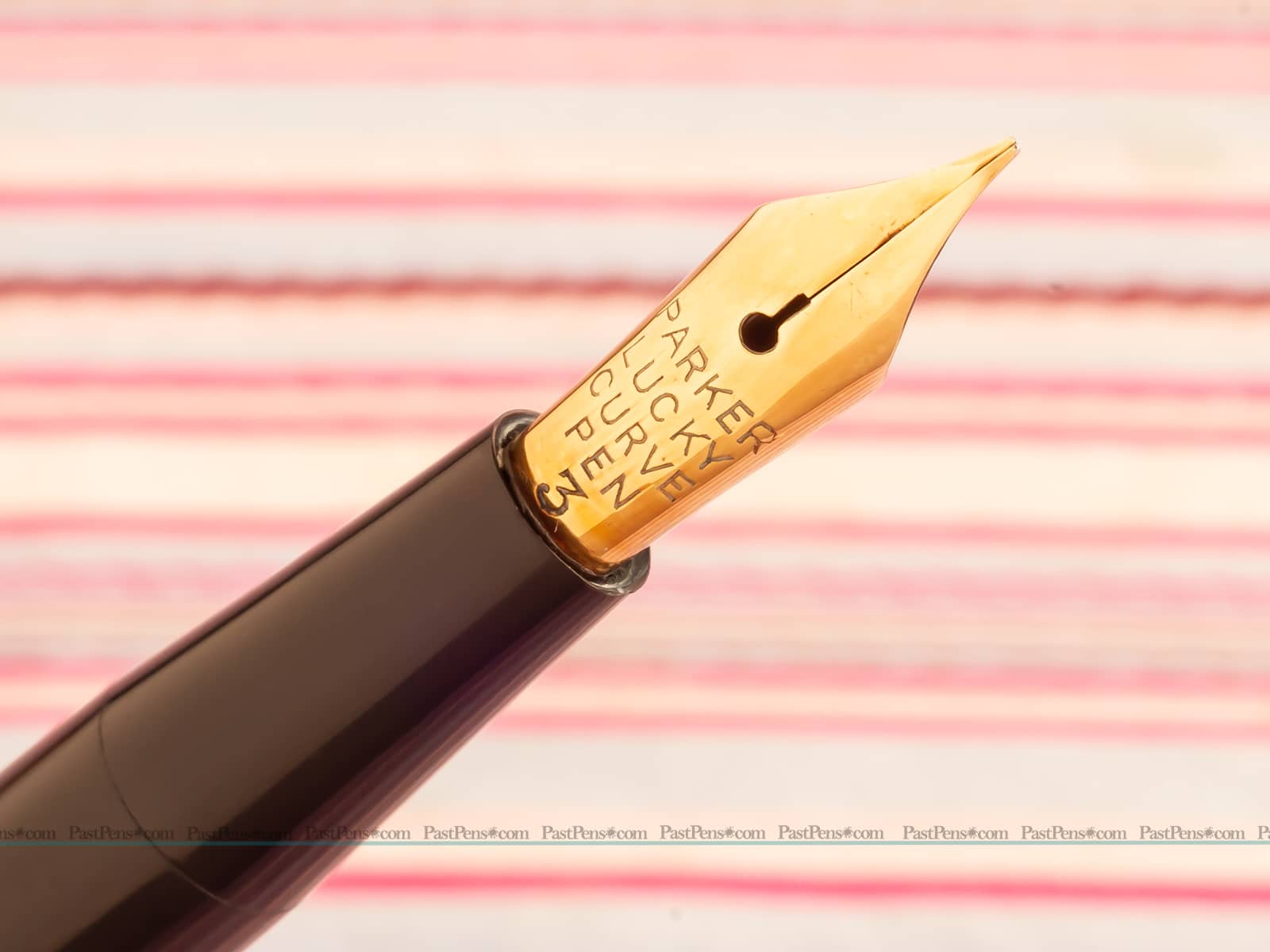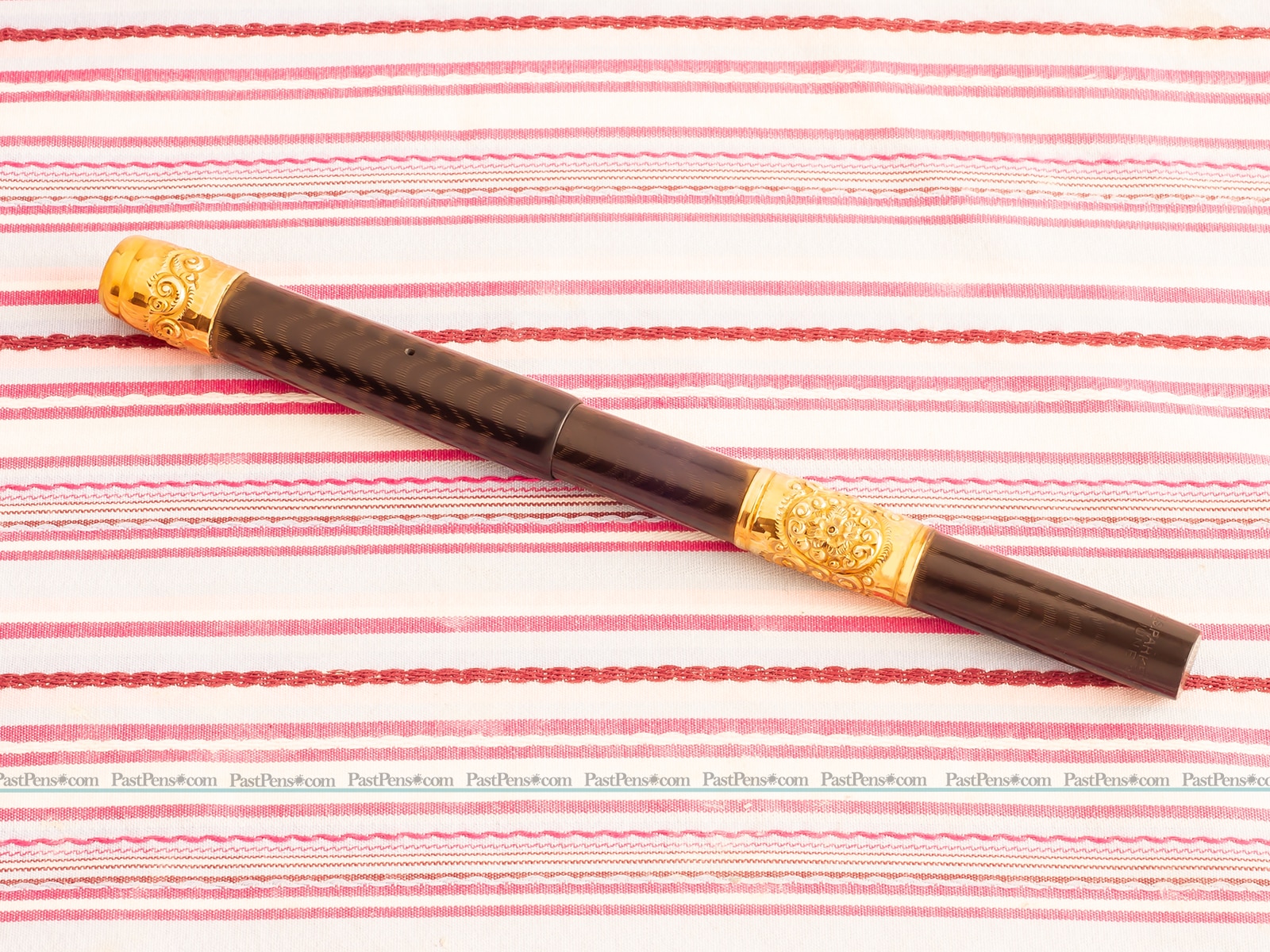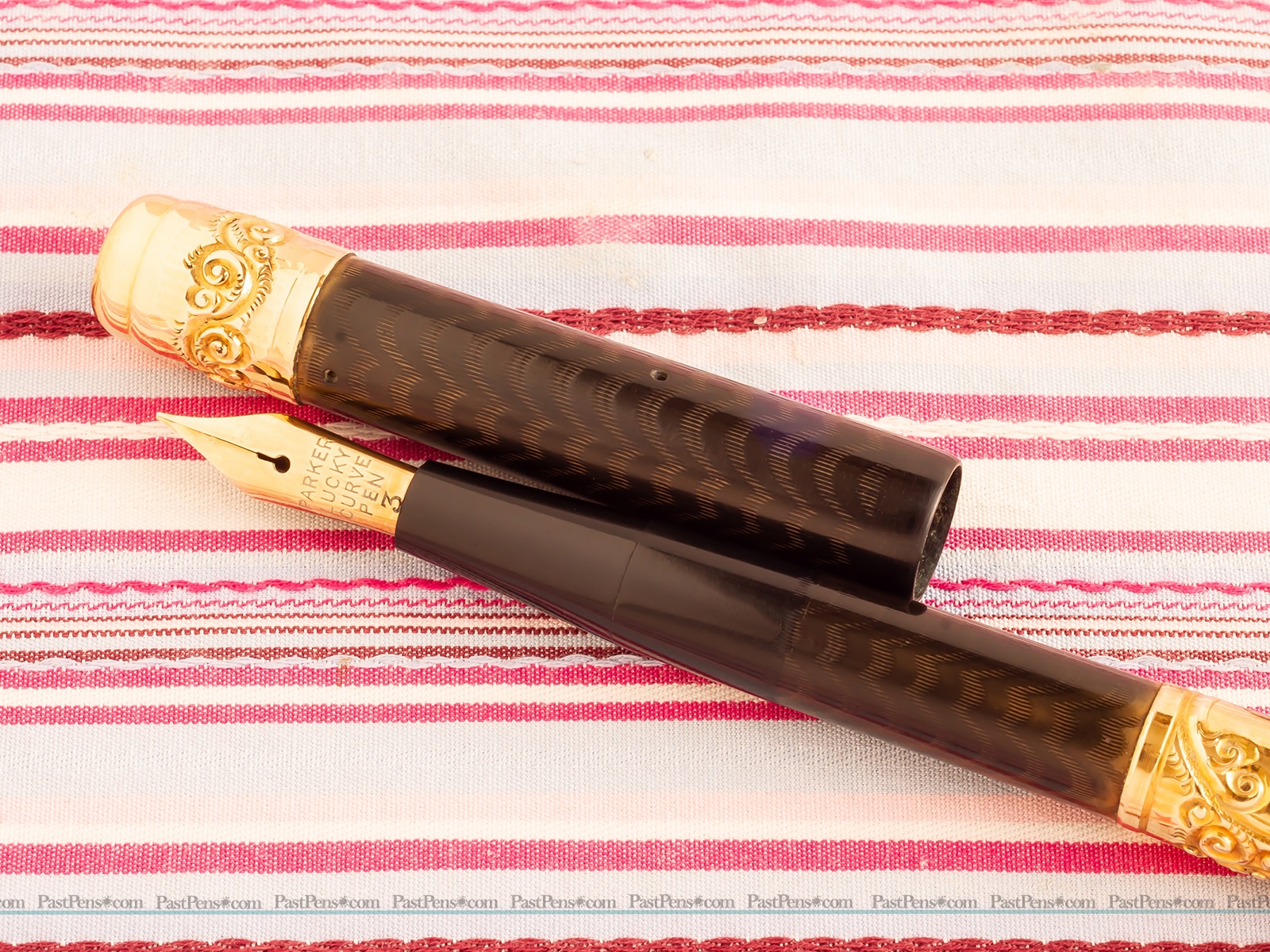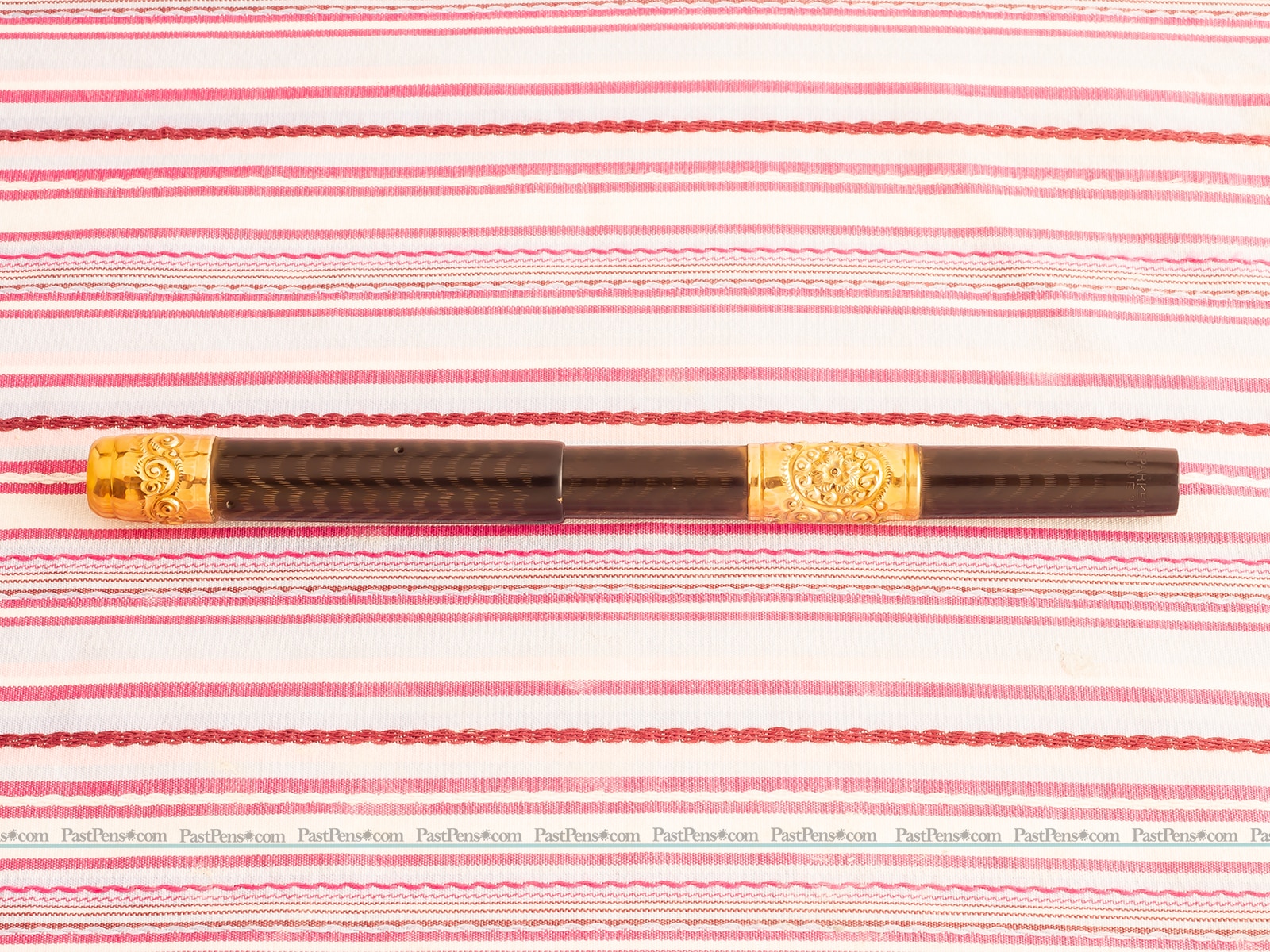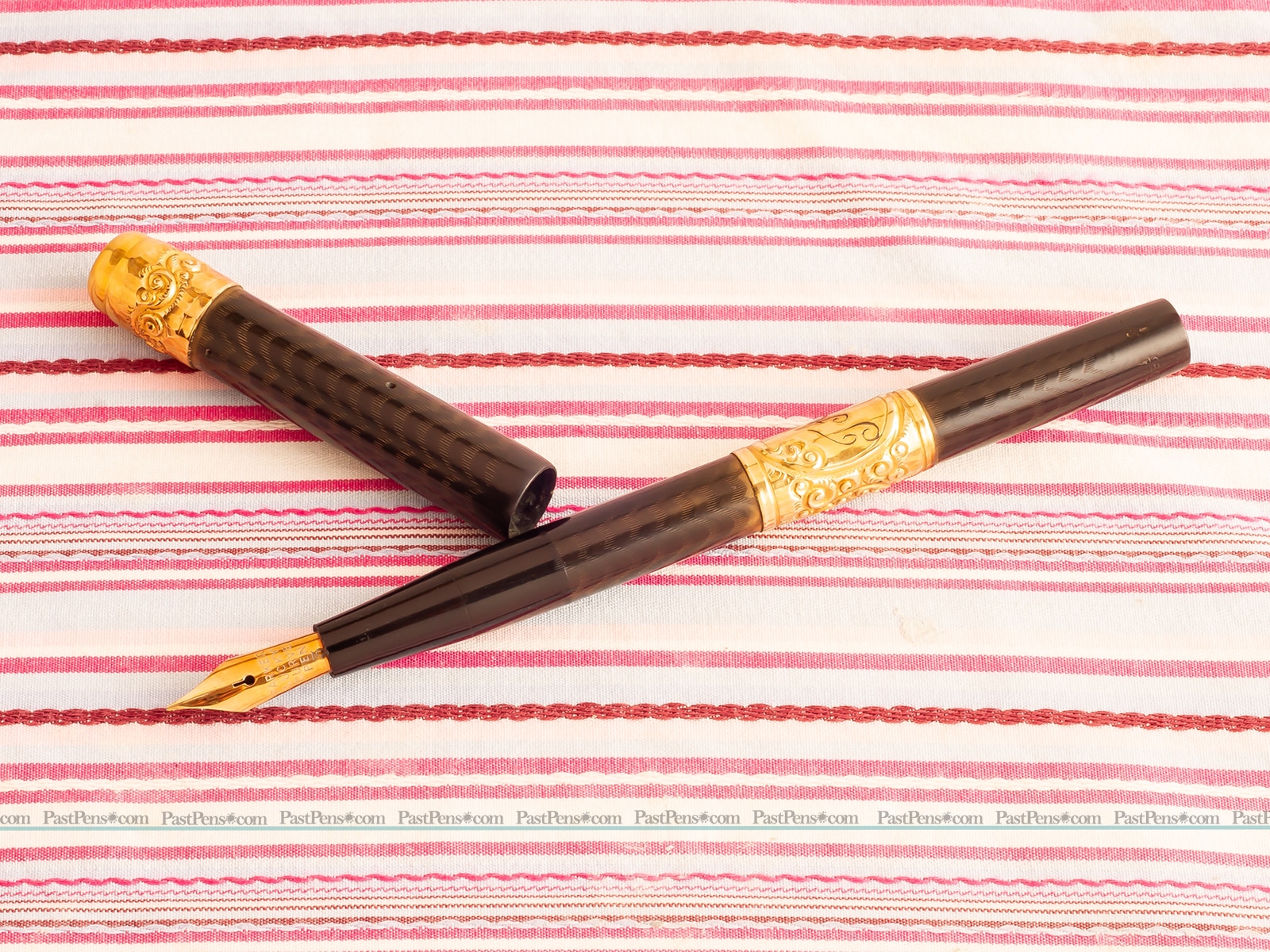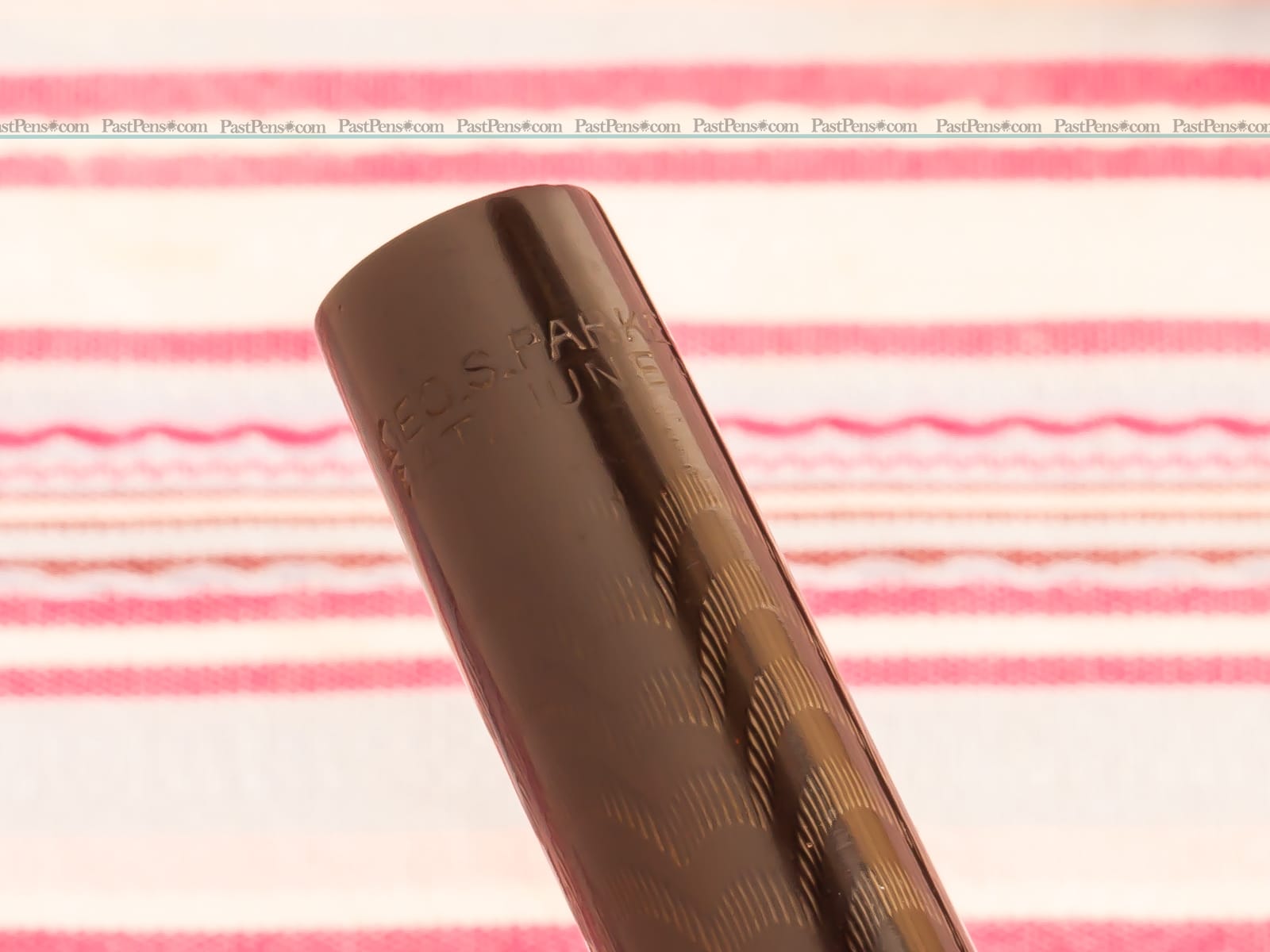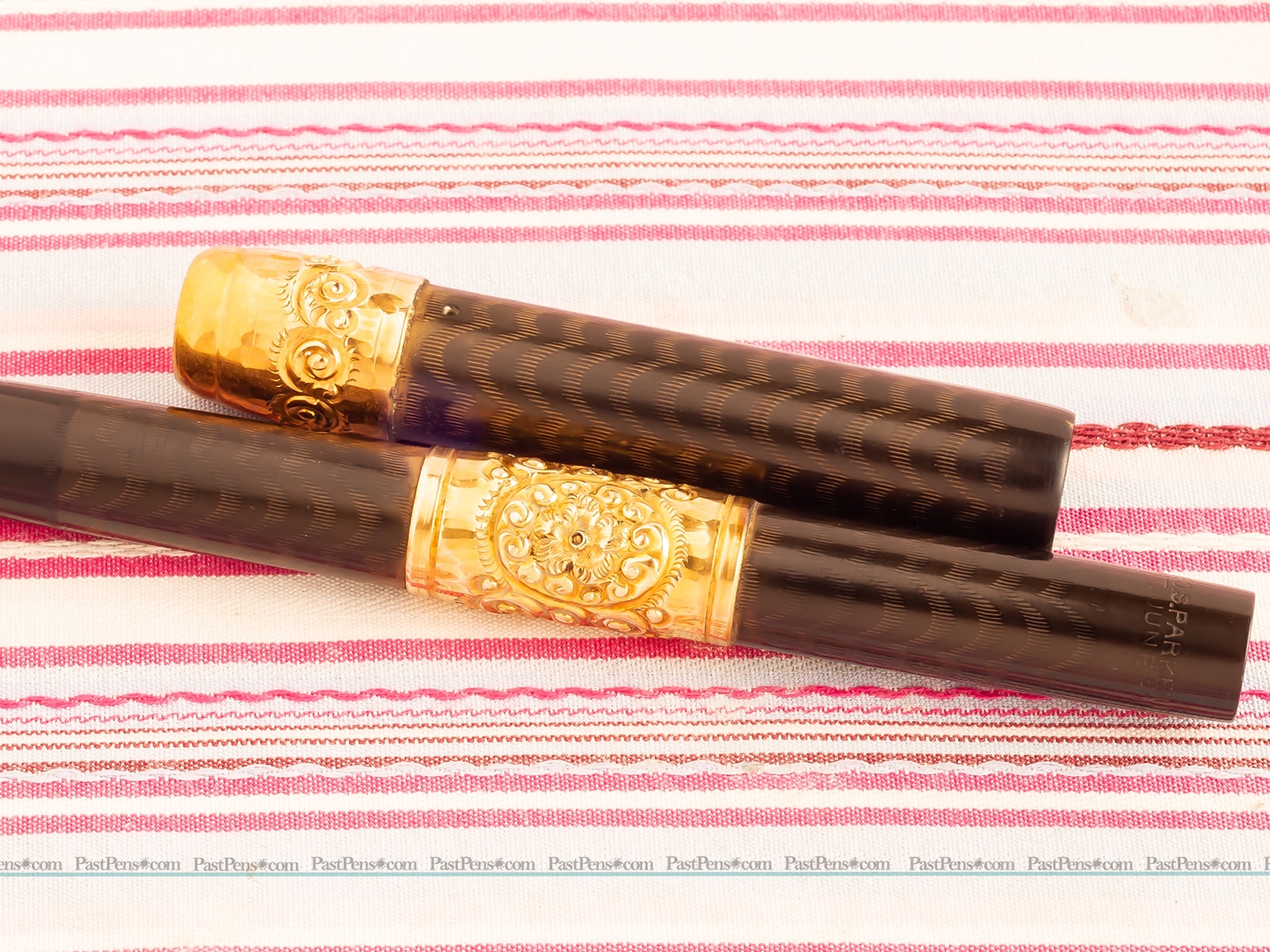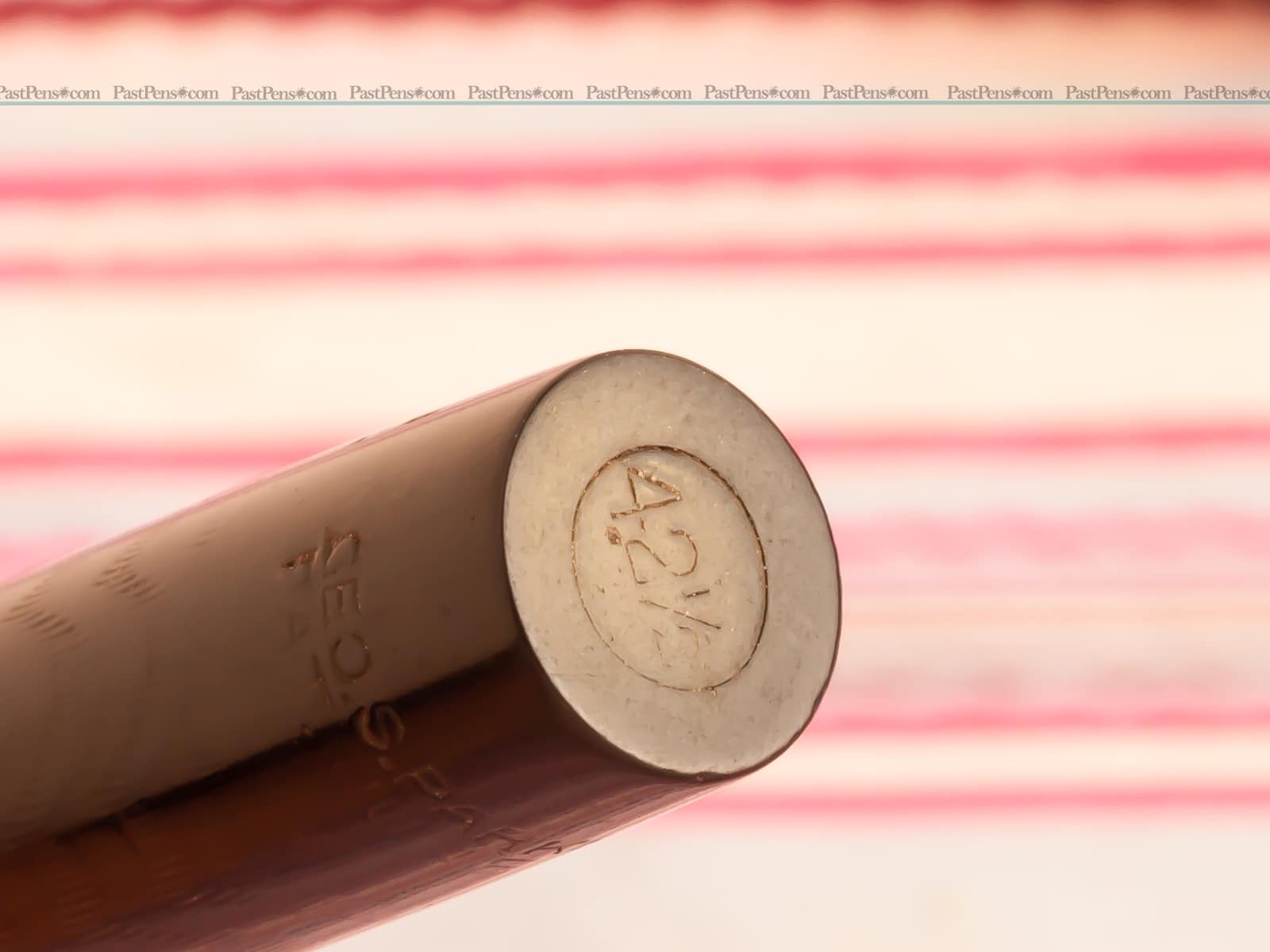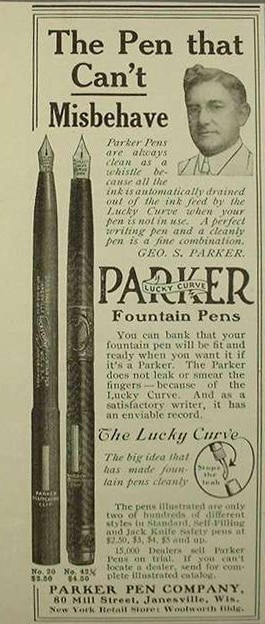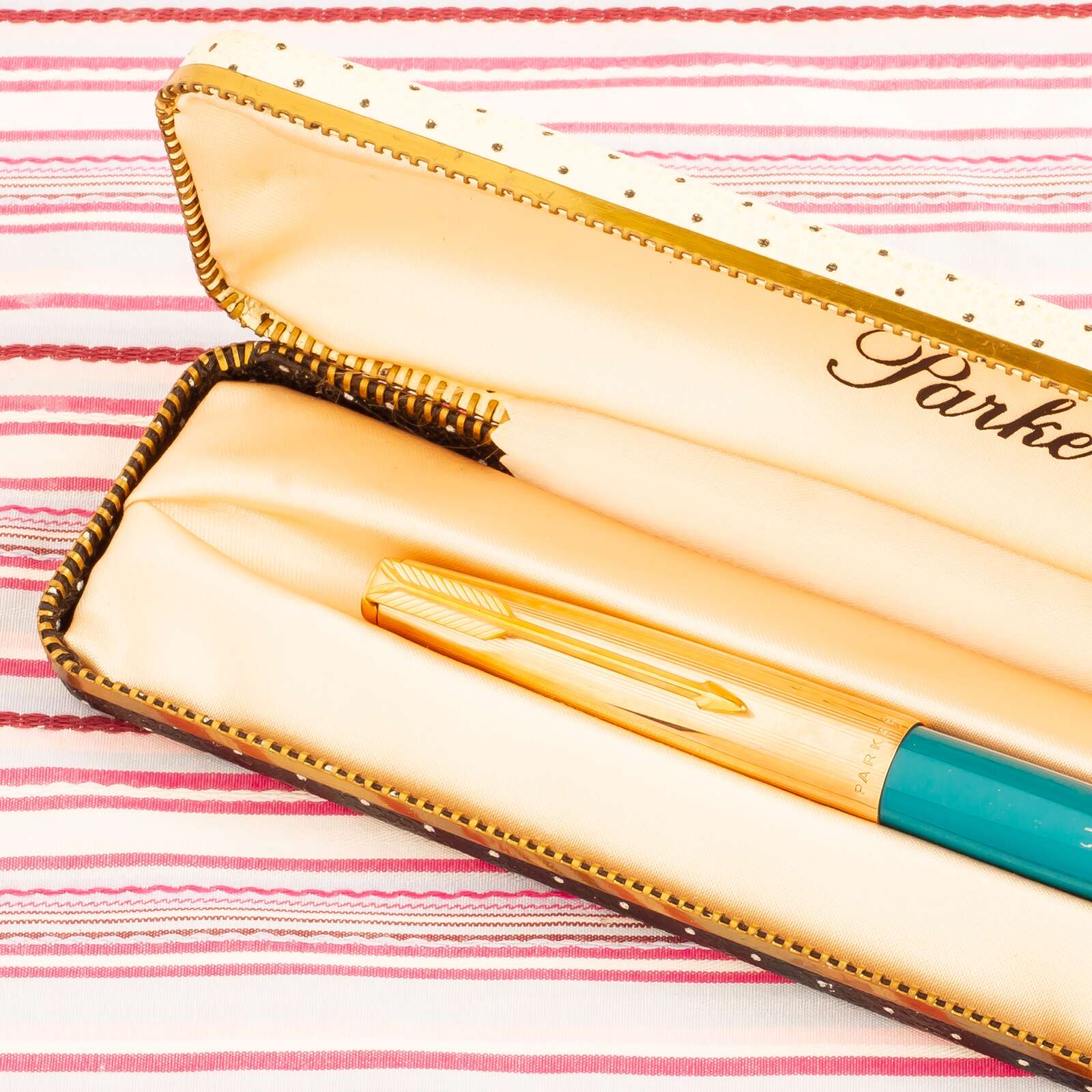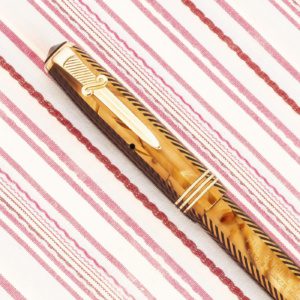Description
– Parker Lucky Curve
– Parker #42-1/2 pen
– Gold mountings
– Antique grade
Parker Lucky Curve – Up here is a vintage Parker Lucky Curve 42-1/2 fountain pen, which was manufactured in USA circa 1890s.
The pen is in black chased hard rubber with gold filled matching gold filled mountings on captop and barrel.
There is an imprint on the barrel ends reads ‘GEO.S.PARKER FOUNTAIN PEN PAT. JUN.30.91. JAN.9.94.’. There is a personalization on the barrel gold mountings.
The pen bears a stunning semi-flexible Parker 14ct Lucky curve solid gold nib, with keyhole airhole.
The pen is an EYEDROPPER.
The pen has been serviced and tested for full functionality. It is rare and very much sought after, of such a vintage pen in nice condition. Ownership of pen with the history and prestige of the Parker, will provide the owner with a feeling of satisfaction and a sense of ceremony each time that they write.
The Parker Pen Company was founded in 1888 by George S. Parker, whose mission was to manufacture a better pen. The Parker Pen Company’s tradition epitomizes the highest standards of craftsmanship, technology, and aesthetics. From the 1920s to the 1960s, Parker was No.1 in worldwide writing instrument sales. The Parker Duofold is one of the most recognizable and enduring fountain pen designs. Launched in 1921, the pen was a phenomenal success and put the Parker Pen Company squarely into the front rank of fountain pen manufacturers. Duofold remain popular in Europe being produced well into the 60s in varying sizes and colors when it was revived in the 80’s once again as Parker’s Flagship model.
In 1932, Parker began test marketing the next generation in fountain pens, the Golden Arrow. This radical new pen featured a compact plunger-operated pump filler that nestled at the back end of the barrel, eliminating the space-hungry pressure bar and sac. The Golden Arrow was later renamed as Vacumatic. The Vacumatic went on the market in 1933; and discontinued in 1939, due to the introduction of new Aero-metric filler.
Parker pens were frequently selected to sign important documents such as the World War II armistices, and commemorative editions were sometimes offered.
You can also view our item on Trumblr.

